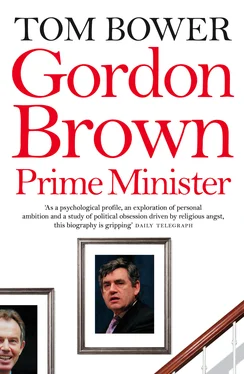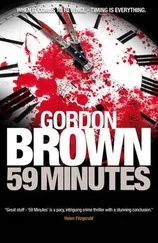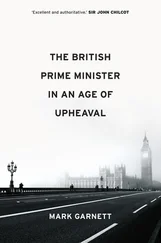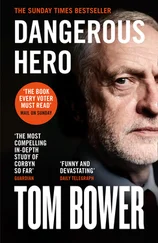1 ...8 9 10 12 13 14 ...32 Their disagreements mirrored the sectarian division within the Scottish Labour Party. Galloway, a Catholic from the west coast, did not warm to Brown’s east coast Presbyterianism. He was scathing about Brown’s silences at the late-night meetings held by Alex Murray, a famed Scottish trade unionist in Ayrshire, at which Brown refrained from engaging in the debates. He was also irritated that Brown, despite being steeped in the history of the Labour movement, appeared to be motivated by instinctive beliefs rather than philosophy. Not an original thinker, concluded Galloway, nor a man who had suffered grinding poverty. As Galloway fondly repeated, the divisions within the Scottish Labour Party ran deep, and as with all divisions within a family, the disagreements were aggravated by personality differences. Brown’s idiosyncrasies could be particularly aggravating. While chairing the party’s Scottish Council, he would pull bits of paper out of his bulging plastic bag, say, ‘See, this is how we deliver,’ and list twenty points.
The disagreements intensified in 1980. In England, the Militant Tendency and the Bennites were emasculating the Labour Party. In Scotland, by contrast, the party was divided over unilateral disarmament and withdrawal from NATO, but remained united as a coherent group, despite outbursts of ill-discipline. The rows irritated Brown. At a meeting on 14 November 1981 he was disturbed that Galloway, representing the hard left, berated Michael Foot for not supporting Tony Benn against Denis Healey in the election for deputy leader. Brown had attached himself to the soft-left, Neil Kinnock tendency, advocating a ‘moral crusade’ to rebuild Labour’s appeal to voters. His personal response to the warfare was ‘One Person, One Vote’, a lacklustre pamphlet attacking the trade unions’ undemocratic use of the block vote to wield influence. All his other ideas had been rejected by the electorate. His support for John Silkin, a forlorn London lawyer, as deputy leader confirmed his own isolation from the realities in London. With a general election expected within two years, he still faced huge hurdles if he was to find a safe parliamentary seat. New hopes rested on his election in 1982 as the Scottish party’s vice-chairman and on a journalistic scoop – publishing an internal document of Britoil, an oil company operating in the North Sea which was on the verge of privatisation. The ‘strictly confidential’ document showed that the company’s profits would not grow for five years. The scoop, he hoped, would discourage private investors from buying Britoil shares from the government, but he was to be disappointed by the response. Despite his high profile and his loyal efforts for the party, he still sensed that he suffered handicaps. He sought advice from Jimmy Allison. ‘Get your nose in with the unions,’ Allison advised, adding that he would need to neutralise the opposition of the communists, who possessed sufficient influence in the Scottish Labour Party to veto any aspirant.
The most approachable trade unionist was Jimmy McIntyre, a popular leader of the Transport and General Workers’ Union (TGWU). McIntyre was concerned that in television interviews, compared to their employers, his members made fools of themselves. Brown agreed to organise a media course for Scottish shop stewards, using role playing – ‘You’re on strike, what do you tell media?’ In return, he expected McIntyre to help him gain selection for a safe seat. He also sought advice from Robin Cook. At a meal in a Chinese restaurant in Soho arranged by Murray Elder, Brown asked Cook for help. ‘ I am sureyou will do very well, Gordon,’ Cook replied. Brown repeated his request and, he told his authorised biographer Paul Routledge, received the same non-committal reply. They did however agree to co-author a book. Scotland: The Real Divide , a collection of essays about poverty, would be published the following year.
The pace of Brown’s life remained frenetic. His relationship with Sheena McDonald had ended and he was seeing Marion Caldwell, a dark, good-looking lawyer born in Glasgow. They had met in 1981. Since neither wanted to sacrifice their professional career, there was an understanding that they would meet whenever he was minded. Their relationship was not exclusive. At the same time, Brown was also meeting Carol Craig, a publicist who would live with the journalist Alf Young. Off-hand relationships precisely matched Brown’s requirements. He was thirty years old. He had waited six years for a parliamentary seat. His impatience was explosive. Margaret Thatcher’s unpopularity, he calculated, would secure a Labour victory at the next election.
Over the previous months he had forged relationships in his native Fife. Helped by Tom Donald, a local journalist, and Jimmy McIntyre, he had taught politics at weekend schools for trade unionists and participated in their discussions, even mouthing support for Bennite co-operatives and nationalisation. ‘I don’t want any more pudding heads as MPs,’ McIntyre had reassuringly told Brown. ‘We don’t need any more ill-disciplined big drinkers in the Commons. We need clever, media-savvy types.’ Brown was his man. ‘Spend every evening at meetings,’ McIntyre advised him. That advice was endorsed by Alec Falconer, the TGWU’s shop steward at the Rosyth shipyards. When the opportunity arose, Brown was promised, the clan would beat off his rival contestants.
Having secured the support of the trade union officials, Brownneeded to win over two kingmakers. First, Hugh Wyper, a leader of the local Communist Party, was approached. George Galloway says that he was consulted by Wyper and, despite his reservations, urged that the communists support Brown because the trade unions needed his brainpower. Wyper gave his approval. Second was Alec Kitson, the deputy general secretary of the TGWU at its headquarters in London and a communist sympathiser, albeit a member of the Labour Party. He agreed that Brown was a suitable candidate. Having secured that support, Brown waited for an opportunity.
In 1983 Dunfermline East, a safe Labour seat near Edinburgh, was looking for a candidate. Known locally as ‘Little Moscow’, the old coalmining area had been represented from 1935 to 1950 by Willie Gallacher, a communist MP. Both the communists and the TGWU agreed that Brown, the Scottish Labour Party chairman that year, was ideal. All other challengers were rebuffed and the selection was predetermined. Nervously, Brown travelled with Jonathan Wills from Edinburgh to make his speech to the party committee in Cowdenbeath. David Stoddart, the constituency agent, was primed to favour Brown. Like any prospective candidate, Brown promised the committee, if selected, to be active, to care for the constituency’s children, pensioners and the poor, and to fight for the destruction of the hated Tory regime. Soon after his speech, the machine delivered him the guaranteed seat in Westminster.
That summer, during the Edinburgh Festival, John Reid, who was then working for Neil Kinnock, was drinking in a pub with Roy Hattersley, a member of the Labour shadow cabinet. ‘You should meet Gordon Brown,’ Reid told Hattersley. ‘He’s a young man who’s bound to be leader of the party one day.’ Hattersley, a traditional socialist, made a note of this newcomer who shared his dislike of the Bennite extremists but supported public control of the economy and a planned economy. He and Brown also shared a disgust that Roy Jenkins, the idol of many in the party, had won a parliamentary seat at a by-election in Glasgow Hillhead in 1982 for the new SDP, a breakaway party led by the ‘gang of four’ former Labour cabinet ministers – Jenkins, Shirley Williams, David Owen and Bill Rodgers.
Brown had immersed himself in the politics of that by-election while employed as a researcher for a television documentary. He regarded Jenkins as a traitor, and could not understand why the split had occurred. Like many party activists, he remained oblivious to the public’s anger about strikes by public sector workers. He was convinced that the increase in unemployment under Margaret Thatcher to more than three million and her cuts in public spending would persuade the voters to return to Labour. He discounted the Tories’ appeal to the middle classes, the fact that inflation had fallen from 20 per cent to 4 per cent, and their pledge to control the unions by introducing secret ballots before strikes and removing the protection of union funds from civil litigation. The evidence of his political blindness was displayed in Scotland: The Real Divide , the book he co-authored with Robin Cook. Both damned Thatcher’s analysis of Britain’s economic weaknesses, and extolled the virtues of Clement Attlee’s postwar legacy.
Читать дальше












